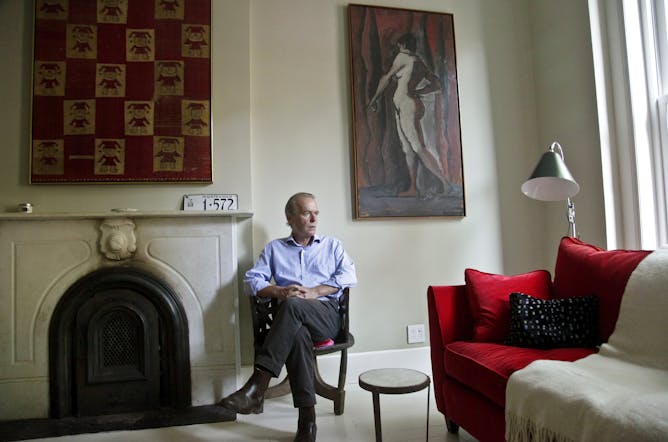Plus: Martin Amis remembered
|
|
|
|
I’m old enough to remember the first computers being introduced into newsrooms. That was over 40 years ago. They were big and ugly. Every piece of them – from their inelegant architecture to the microchips driving them – was manufactured in Japan. Then the pendulum began to swing, and by the turn of this century China was establishing itself as the king of computer manufacturing. Particularly microchips. Now the pendulum is swinging back in spectacular fashion.
Companies like South Korea’s Samsung and the US’s Intel have announced that they will be opening up production plants in Japan. These decisions are being driven by Washington, which is doing everything it can to get production away from China and back on US soil, or to countries it considers its friends. Like Japan. Jonathan Munemo explains why Africa stands to lose out from these seismic changes. He suggests what African countries could do to limit the
damage.
Also today, read our latest analysis of the G7 summit and an appreciation of the life of the novelist Martin Amis.
|

|
Caroline Southey
Founding Editor
|
|

Shutterstock
Jonathan Munemo, Salisbury University
Washington’s industrial policy is fracturing trade and investment flows based on geopolitical considerations.
|

Martin Amis pictured at home in 2012.
Bebeto Matthews/AP
Camilla Nelson, University of Notre Dame Australia
Martin Amis’s writing style was instantly recognisable: caustic and savagely funny with a sense of pathos. His death at 73 marks the end of an era.
|

Ghanaian-born curator of the biennale, Lesley Lokko.
Jacopo Salvi/La Biennale di Venezia
Tomà Berlanda, University of Cape Town
The Venice Architecture Biennale has an African curator for the first time this year – and a shift in focus.
|
|
|
-
Donna Weeks, Musashino University
An ‘unscheduled’ visit by Ukrainian President Volodymyr Zelensky certainly raised the stakes for the summit at a critical time in the war.
-
Marcin Kaczmarski, University of Glasgow
China’s partnership with Russia has been unbalanced in recent years, as Beijing grew more powerful.
-
Jordi Paps, University of Bristol
The question of how difficult it is for life to emerge is interesting – not least because it can shed some light on the likelihood of finding life on other planets.
-
Justin Stebbing, Anglia Ruskin University
This study further highlights the potential of mRNA vaccines in cancer treatment.
-
Samantha Garrard, Plymouth Marine Laboratory
Inflating your cars’ tyres properly isn’t just good for your bank account - it can minimise your environmental footprint too.
|
|
|
|

Liam Cole Young, Carleton University
The Ottawa Senators’ bidding war has important lessons about speculation and financialization in pro sports.
|
| |
| |
| |
| |
|
|
|
|
|
|
|
